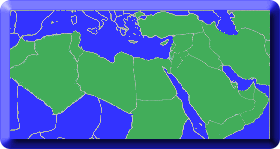
Topics in Middle Eastern and North African Economies
Document Type
Article
Publication Date
5-1-2019
Journal Title
Topics in Middle Eastern and North African Economies
Volume
21
Issue
1
Publisher
Middle East Economic Association and Loyola University Chicago
Abstract
This study provides empirical evidence on the economic consequences of terrorism on the labor market and labor force by looking at the case of Iraq. We develop a set of hypotheses from classical labor economic theory around the consumer maximization problem and propose a threshold for endangerment costs that, when reached, cause households to choose not working, and a smaller consumption, rather than work and face the danger of terrorism and violence. As such, we hypothesize that increased endangerment costs lead to fewer people working, less hours worked per week, lower wages, and less job permanence. To the best of our knowledge, this might be the first study that empirically explores the economic consequences of terrorism on the labor market within a country facing insurgent and sectarian violence. Moreover, the analysis adopts a variety of labor market measures to provide an analysis of short and long run terrorism effects. Finally, the analysis expands on the previous literature to include not only a measure of the impact of own district terrorism, but also builds a geospatial variable to incorporate potential spillover effects of terrorism on neighboring governorates of Iraq. The analysis studies the effect of violence in Iraq on the labor force using a nationwide household socio-economic survey that was conducted at the household and individual level in 2007 by the Iraqi Organization for Statistics and Information Technology (COSIT), Kurdistan Regional Statistics Office (KRSO), and the World Bank. Briefly, our preliminary results show strong evidence in favor of each hypothesis.
ISSN
2334-282X
Recommended Citation
Yaseen, Asmara, "Effects of Terrorism on Labor Market: A Case Study of Iraq". Topics in Middle Eastern and North African Economies, electronic journal, 21, 1, Middle East Economic Association and Loyola University Chicago, 2019, http://www.luc.edu/orgs/meea/
Creative Commons License

This work is licensed under a Creative Commons Attribution-Noncommercial-No Derivative Works 3.0 License.
Copyright Statement
© 2019 The Authors



Comments
Presentation of the articles in the Topics in Middle Eastern and North African Economies was made possible by a limited license granted to Loyola University Chicago and Middle East Economics Association from the authors who have retained all copyrights in the articles.